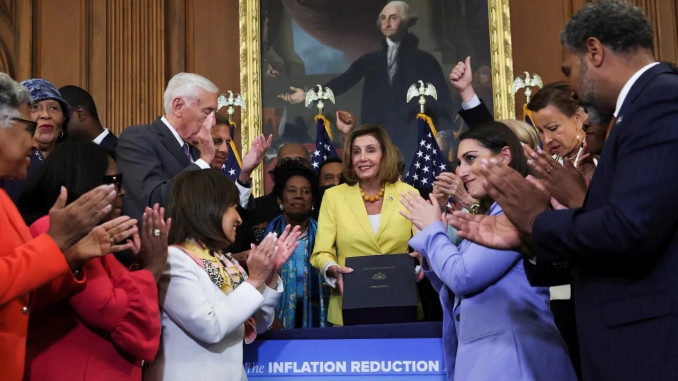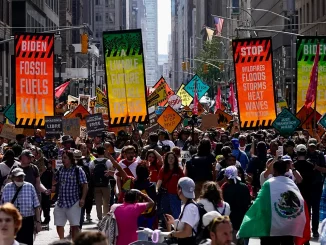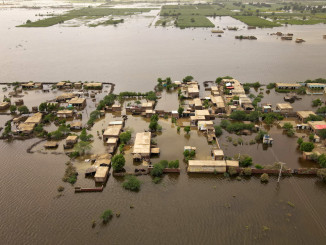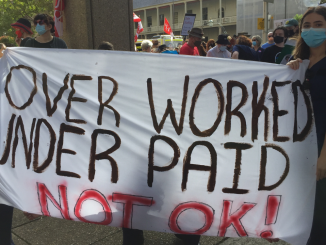
The Democrats and their supporters are trying to paint the passage of the Inflation Reduction Act as if it just saved the planet from climate catastrophe, solved the health care crisis, and made the corporations pay for it. In fact, it doesn’t even come close.
The bill will spend tens of billions of dollars on some prescription drug subsidies, and create some new powers for Medicare to drive down prescription drug prices for the elderly. It will make available $369 billion in tax credits designed to increase production of renewable energies and build more electric cars and energy efficient homes.
While some of these things are certainly better than nothing, overall this is a slap in the face to millions of people who might have still hoped that the Biden administration would implement real improvements to the health care system, Medicare coverage, and the environment. These tiny changes don’t even come close to what is needed.
The bill was originally called the Build Back Better Act, and proposed over $3 trillion in spending. The final version of this bill that just passed was cut by over $2.3 trillion. It cut out coverage for child tax credits, for insulin price reductions, for hearing care for the elderly, dental care and other necessary health care that people require, all of which were included in the original bill. In this past week, the vast majority of Democrats voted with Republicans to shoot down a number of amendments that aimed to put those original provisions back into the bill.
The Democrats also tried to showcase the bill’s corporate tax increases as something special. But these too are paltry when compared to what is needed. Even some of the biggest Wall Street firms admit that the modest increases won’t hurt business interests at all, much less bring in the type of money needed to “make the rich pay their fair share” — as the Democrats like to pretend.
But the biggest sham in this bill is that it tries to paint further environmental destruction as environmental preservation. The bill includes major handouts to the fossil fuel industry, including the construction of a 300-mile gas pipeline in West Virginia, which was insisted upon by Democratic Senator Joe Manchin of West Virginia, who has major backing from the fossil fuel industry.
At the same time, the bill actually requires fossil fuel extraction to increase. According to the bill’s mandate, over a ten-year period, the government will be prohibited from issuing a single lease for offshore wind development unless at least sixty million acres — about the size of Oregon — have been leased for oil and gas in the previous year. Instead of leading to reductions in carbon emissions, this requirement will most likely lead to increases.
And most of the actual shift to renewable energies would occur because households will make (they hope) the decision to switch to cleaner energy sources in hopes of getting some minor tax rebates at the end of the year. This part of the bill promotes things like purchasing electric cars. But the rapid switch to electric cars by the auto companies has little to do with lowering carbon emissions. Electric cars still burn fossil fuels in order to produce them, and still much of the electricity required to charge them still comes from fossil fuels. Over time they do rely on less fossil fuel consumption than gasoline-powered vehicles. But the real reason auto companies are in a hurry to switch to electric vehicles is because they have substantially fewer moving parts than gasoline-powered vehicles and require less labor to produce them — about 30 percent less. So, for the auto industry, switching to electric vehicles means they can reduce the work force, bring down their labor costs, and increase their profits. Whatever reductions in carbon emissions (if any) may come from this bill over time will be way too little and way too late.
Ultimately, the Inflation Reduction Act doesn’t come close to addressing the enormous problems that working people face. Instead, it continues to defend a system where corporations and banks amass wealth through the exploitation of workers and the destruction of the planet. That is not something to celebrate.




